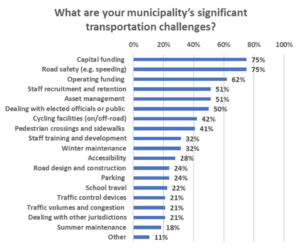In 2021, Prime Minister Justin Trudeau promised $14.9 billion in public transit projects over the following eight years, including permanent funding of $3 billion per year for Canadian communities starting in 2026-27. The federal government consulted people on the new permanent transit fund from July-October 2022, including 75 engagement sessions, 71 written submissions, 391 questionnaire responses and 127 emails, and more than 40,000 social media impressions related to the transit project. I was happy to participate in these sessions along with others in HRM. Last week, the federal government released a report summarizing what they heard (click here to download it). Among their findings:
- There is no one-size-fits-all solution to public transit. Canadians in small, rural, and northern communities want to use transit, and it will look different from that in our (very few) large cities. Access to transit in rural areas looks different from the situation in urban areas, where displacement of transit-dependent communities is rampant
- Consistent and transparent funding is needed to allow local and regional governments/transportation authorities to plan and implement improvements, including route expansion, frequency increases, and new vehicles and charging stations for electric vehicles
- Better communication and collaboration between all levels of government is crucial to plan for future transit and active transportation
- Identifying Canada’s infrastructure needs and priorities is necessary. To that end, the federal government will create an advisory body of experts to undertake Canada’s first National Infrastructure Assessment (NIA), to help undertake evidence-based long-term planning into 2050
It is something that the federal government finally recognizes that small and rural communities need transportation options outside of driving. The Transportation Association of Canada’s online survey of 190 member municipalities that have populations under 150,000 people (about 76 municipalities responded, for a 40% response rate). 75% of the communities said they had experienced at least moderate growth over the last decade, and more than half have populations that live mostly in urban or developed areas.

However, only 33% listed public transit as a core responsibility of their staff. While the technical challenges they experienced included road safety (75%), asset management (51%), cycling facilities (41%), winter maintenance (32%), and accessibility (28%), the most-cited challenge was capital funding (75%) and operational funding (62%) was third on the list.
The new transit fund will complement other funding for municipalities. The Canada Community-Building Fund (the new name for the Gas Tax Fund) supports public transit in municipalities by transferring them $2 billion per year. Municipalities can pool, bank, or borrow against the funding which gives them flexibility to invest not just in transit, but all kinds of other community improvements like brownfield remediation, broadband, and wastewater facilities. The Active Transportation Fund also provides $400 million over five years to make travel by active transportation easier, safer, more convenient and more enjoyable, in support of Canada’s National Active Transportation Strategy.
